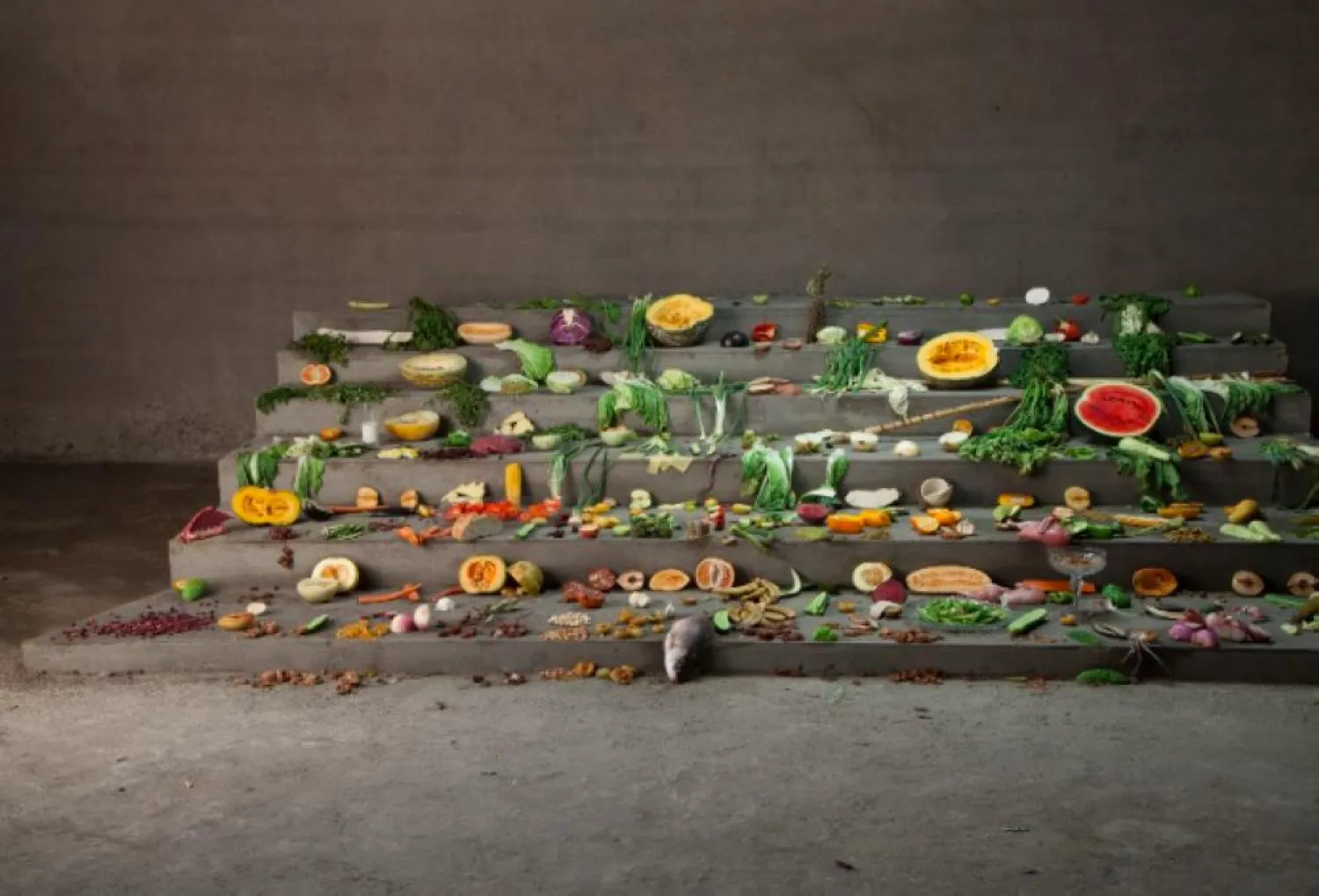Pakistani artist Basir Mahmood’s solo exhibition entitled "Eyes Recently Seen" was launched on Thursday (September 6) at Letitia Gallery in Beirut. Curated by Lauren Wetmore, the show presents a series of photography and video works.
“Many themes from Basir Mahmood’s work will be relevant to the Beirut context, from picturing an interdependent relationship between humans and the sea to exploring the societal position of so-called ‘unskilled’ laborers. Basir’s work brings an array of contexts and themes in sharp focus through his process – the way he allows us to transcend the distinction between how an artist sees the world versus how the world is seen,” Wetmore said.
Mahmood’s photographs and videos deal with labor, hierarchy, distribution and identity; they occupy a space between staged scenes and spontaneous documentation. Born in 1985 in Lahore, Mahmood reflects on various structures of life and recreates his own visual experiences using photography and videos.
Eyes Recently Seen brings together works from the past five years of Mahmood’s practice – including meditations on fishermen titled Message to the Sea, 2012 and Holy water from Makkah, 2015 – are shown together with new pieces that investigate communal human consumption.
“All the works in the show contain observations that may be familiar to some in their everyday life, but some may not have been aware of them at all. My video work ‘A message to the sea’ can envision a relationship between the sea and a fisherman, a profession that does not exist anymore due to recent developments in the old fishermen settlement where I stayed for several months; and my photo work ‘Holy Water from Makkah’ can trace a trajectory of a sip of Zamzam that reached me through a pilgrim who carried it back to distribute it to his family and friends on his return home,” Mahmood said.
Both Milk and All Good Things, made in 2018, are composed of the activity of individuals from various occupations, including day laborers and milk sellers, in a Lahore film studio.
The new diptych, All Divided Equally, 2018- embodies Mahmood’s fascination with the societal division of resources by depicting an abundance of food, each item cut exactly in half to create a multitude of diptychs. The resulting tableaux consider the outcome of equality in distribution.
“It shares reflections and representations of everyday routines. I keep on looking, continually trying to make sense of what I see around me. It is tiring at times because not everything makes sense - we have a complex world around us. When I recreate what I have seen inside a studio space, my imagination plays a role in negotiating the position I have to what I saw. This is how I personalize every narrative that I create: I am a narrator who is part of the story he is telling. If not in reality, what goes on inside a studio space is at least in my control: for instance, in my diptych photo work ‘All Divided Equally’, I can hope for an equal distribution of all the resources equally among everyone,” Mahmood said.
He recently participated in the 10th Berlin Biennale: We Don’t Need Another Hero in Berlin, 2018 and completed the Rijksakademie residency program in Amsterdam, 2016-2017. His work has been showcased in exhibitions internationally, including Contour Biennale 8 in Mechelen, 2017, The Abraaj Group Art Prize: Syntax and Society in Dubai among many others.









